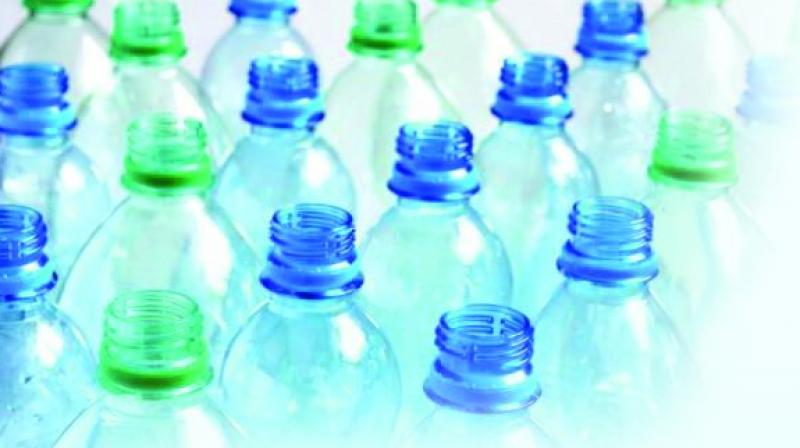Hyderabad: Techie recycles plastics into fuel

Hyderabad: A Hyderabad-based mechanical engineer claims he is turning waste plastic into into fuel. Satish Kumar has been using end life plastic, which can’t be recycled further to produce synthetic fuels.
“About 500 kg of non-recyclable plastic can produce 400 litres of fuel,” said Mr Kumar. He says he uses a three-step reverse engineering process where the plastic is indirectly heated in vacuum conditions, de-polymerised, gasified and condensed. The result? Three synthetic fuels — diesel, aviation fuel and petrol. The process is called plastic pyrolysis which produces these combustible fluids that resemble petrol, but are not exactly the same.
“It’s a simple process which requires no water and doesn’t release waste water. Neither does it pollute the air as the process happens in vacuum,” Mr Kumar said.
He says his unit, started in 2016, has cleared 50 tonnes of plastic. They mainly use plastics collected by NGOs or from companies that produce bulk plastic waste.
Producers generally don’t call back their plastics. Informally some companies recycle the plastic but even that reaches a limit after about six cycle. After this the dead plastic is just dumped. “That’s where this technology steps in,” Mr Kumar said. The city dumps over 2,500 tonnes of plastic in the form of bottles and bags.
The fuel he produces is sold at 50-40 rupees per litre to local industries, including a bakery that uses it for broiler purpose. The feasibility of this fuel is yet to be verified for automobiles, but the company is in talks with the RTC who has asked it to submit its feasibility reports.
Simple science
- Of this, about 200-240 litres is in the form of diesel, about 80-100 litres of aviation fuel or kerosene, 40 to 60 litres of petrol and 20 litres of residues.
- All kinds of plastics except PVC and PET can be used.
- Plastics do not have to be segregated for this process.
- Combustion of these is safe as it produces no sulphur and nitrate emissions.

